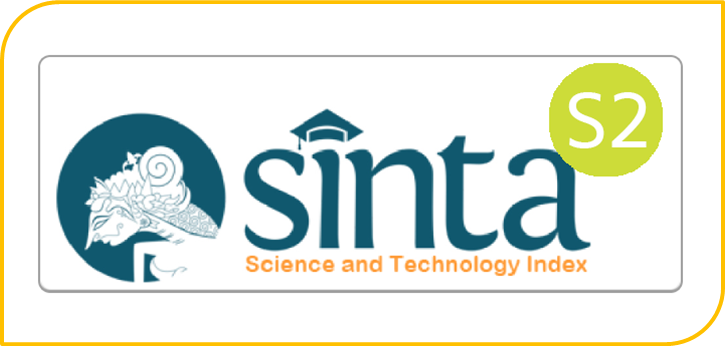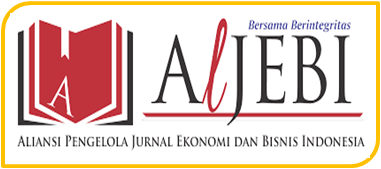CRITICAL IMPRESSIONS ON AMIL PROFESSIONALIZATION AND ITS INFLUENCE ON CAREER INTENTIONS: A PLS-SEM APPROACH
Abstract
Keywords
Full Text:
PDFReferences
Adnan, M. A. (2017). The need of establishment of professional amil zakat to enhance the future zakat development. International Journal of Zakat, 2(1), 71–79. https://doi.org/10.37706/ijaz.v2i1.16
al-Qaradhawi, Y. (1973). Fiqh az-Zakah, cet. II, 1973. In Beirut: Muassasah ar-Risalah.
Alam, N. (2010). Islamic venture philanthropy: A tool for sustainable community development. Available at SSRN 1565859. https://papers.ssrn.com/sol3/papers.cfm?abstract_id=1565859
Almasri, A. Z., Batubara, M., Nasution, J., & Nasution, M. I. (2023). The Future of Amil Professionalization in Indonesia: Exploring Student Intentions. Islam Realitas: Journal of Islamic and Social Studies, 9(2), 186 - 197. http://dx.doi.org/10.30983/islam_realitas.v9i2.7626
Anggoro, Y., Realita, T. N., Anggoro, Y., & Aditama, R. A. (2021). Social entrepreneurship, career choice and religiosity: Ziswaf institution perspective. Jurnal Ilmiah Ekonomi Islam, 7(2), 595-604. https://doi.org/10.29040/jiei.v7i2.2060
Azwar, S. (1993). Kelompok Subjek Ini Memiliki Harga Diri Yang Rendah; Kok, Tahu? Buletin Psikologi. https://journal.ugm.ac.id/buletinpsikologi/article/view/13160
Dewi, P. P., & Yanti, N. (2018). Moderasi Pengakuan Profesional Pada Hubungan Pemahaman Kode Etik Profesi Dan Pemilihan Karir Sebagai Akuntan. Jurnal Ilmiah Akuntansi. https://ejournal.undiksha.ac.id/index.php/JIA/article/view/16634
Evetts, J. (2013). Professionalism: Value and ideology. Current Sociology. https://doi.org/10.1177/0011392113479316
Hamilton, W., Bosworth, G., & Ruto, E. (2015). Entrepreneurial younger farmers and the “Young Farmer Problem” in England. Agriculture and Forestry, 61 (4), 61-69.
Harahap, L., & Efendri, E. (2022). Pelatihan dan Pengakuan Profesional Sebagai Determinan Pilihan Karir Sebagai Akuntan PendidikD. MANABIS: Jurnal Manajemen Dan Bisnis, 1(2), 102–115. https://journal.yp3a.org/index.php/manabis/article/view/927
Henseler, J., Ringle, C. M., & Sarstedt, M. (2015). A new criterion for assessing discriminant validity in variance-based structural equation modeling. In Journal of the Academy of Marketing Science, 43, 115–135. Springer. https://doi.org/10.1007/s11747-014-0403-8
Hoyle, E. (2001). Teaching as a profession. International encyclopedia of the social and behavioural sciences. Elsevier, Amsterdam.
Huda, N. (2013). Solusi persoalan zakat Indonesia pendekatan action research modifikasi. repository.unair.ac.id. https://repository.unair.ac.id/32424/
Iacobucci, D. (2010). Structural equations modeling: Fit indices, sample size, and advanced topics. Journal of Consumer Psychology, 20(1), 90-98. https://doi.org/10.1016/j.jcps.2009.09.003
Jogiyanto, H. M., & Abdillah, W. (2009). Konsep dan Aplikasi PLS untuk penelitian empiris. In Yogyakarta: BPFE-UGM.
Kerr, L. G. (2020). Blind at First Sight: The Role of Distinctively Accurate and Positive First Impressions in Romantic Interest. Psychological Science, 31(6), 715–728. https://doi.org/10.1177/0956797620919674
Kharisudin, A., & Irwandi, P. (2022). Perspektif Mahasiswa Bekerja di Bidang Pertanian Sebagai Upaya Peningkatan Pembangunan SDM Indonesia. Sigmagri. http://ojs.unwaha.ac.id/index.php/sigmagri/article/view/677
Leonard, K. L., & Masatu, M. C. (2010). Professionalism and the know‐do gap: Exploring intrinsic motivation among health workers in Tanzania. Health Economics, 19(12), 1461-1477 https://doi.org/10.1002/hec.1564
Lester, J. N., Cho, Y., & Lochmiller, C. R. (2020). Learning to Do Qualitative Data Analysis: A Starting Point. Human Resource Development Review, 19(1), 94-106. https://doi.org/10.1177/1534484320903890
Levine, F. J., & Bell, N. E. (2015). Social science professions and professionalization. Elsevier.
Liljegren, A. (2008). Professionellt gränsarbete: socionomexemplet [Professional Boundary Work: Social Workers in Sweden]. In Göteborg: Universitetet i Göteborg.
Listanti, M., Nurdin, R., & Hasnita, N. (2021). Analisis Strategi Fundraising Dalam Mengoptimalkan Penerimaan Zakat Di Baitul Mal Kabupaten Aceh Barat. Journal of Sharia Economics, 2(1), 22-41. https://journal.ar-raniry.ac.id/index.php/JoSE/article/view/1272
Liu, T., Yi, S., & Zhu, Y. (2023). Does Chinese Social Work Students’ Career Intention Match Their Professional Identity? The Role of Background Factors. The British Journal of Social Work, 53(4), 2392–2415. https://doi.org/10.1093/bjsw/bcac201
Messmann, G., Mulder, R. H., & Gruber, H. (2010). Relations between vocational teachers’ characteristics of professionalism and their innovative work behaviour. Empirical Research in Vocational Education and Training, 2, 21–40. https://doi.org/10.1007/BF03546487
Nasri, R., Aeni, N., & Haque-Fawzi, M. G. (2019). Determination of professionalism and transparency and its implications for the financial performance of zakat institutions. Journal of Islamic Monetary Economics and Finance, 5(4), 785-806. https://doi.org/10.21098/jimf.v5i4.1158
Nasution, J. (2023). Determinants of the Successful Digital Campaigns on Zakat: an Analysis Based on Islamic Marketing Perspective. Ekuilibrium: Jurnal Ilmiah Bidang Ilmu Ekonomi, 8(1), 94-109. https://doi.org/10.24269/ekuilibrium.v18i1.2023.pp94-109
Nye, C. D., Su, R., Rounds, J., & Drasgow, F. (2012). Vocational Interests and Performance: A Quantitative Summary of Over 60 Years of Research. Perspectives on Psychological Science, 7(4), 384-403. https://doi.org/10.1177/1745691612449021
Park, E. H., & Kim, N. Y. (2018). The influence of nursing professionalism, attitudes toward advance directive, and death anxiety on terminal care performance of nurses in longterm care Hospitals. Korean Journal of Adult Nursing, 3(2). https://doi.org/10.7475/kjan.2018.30.2.183
Ramli, A. H., Takaya, R., & Mariam, S. (2020). Professional Identity in Private Hospital. Proceedings of the International Conference on Management, Accounting, and Economy (ICMAE 2020). https://doi.org/ 10.2991/aebmr.k.200915.039
Saad, R. A. J. (2019). A comprehensive review of barriers to a functional Zakat system in Nigeria: What needs to be done? In International Journal of Ethics and Systems (Vol. 35, Issue 1, pp. 24–42). https://doi.org/10.1108/IJOES-06-2018-0090
Wang, C. (2020). Effects of professional identity on turnover intention in China’s hotel employees: The mediating role of employee engagement and job satisfaction. Journal of Hospitality and Tourism Management, 45, 10–22. https://doi.org/10.1016/j.jhtm.2020.07.002
West, P. B. (1993). Accounting and Society. rso.business.siu.edu. https://rso.business.siu.edu/acctsoc/files/2012/11/12.10.pdf
Wilensky, H. L. (1964). The professionalization of everyone?. American Journal of Sociology, 70(2). https://doi.org/10.1086/223790
Yudha, A., Ridlwan, A. A., Ryandono, M. N. H., & Fahrullah, A. (2018). Measuring professionalism in zakat management institution in East Java. KnE Social Sciences / International Conference on Economics, Education, Business and Accounting (3rd ICEEBA), 903-914. ISSN 2518-668X https://repository.unair.ac.id/113353/
Zhou, X., Ma, J., & Dong, X. (2018). Empowering supervision and service sabotage: A moderated mediation model based on conservation of resources theory. Tourism Management. https://www.sciencedirect.com/science/article/pii/S0261517717301371
DOI: https://doi.org/10.18860/ed.v11i2.23642
Refbacks
- There are currently no refbacks.
Editorial Office:
Megawati Soekarnoputri Building
Faculty of Economics
E-mail: eldinar@uin-malang.ac.id
Universitas Islam Negeri Maulana Malik Ibrahim Malang
E-ISSN 2622-0083

El Dinar under a CC BY SA 4.0 International License.
Member of:
Indexed By:
















